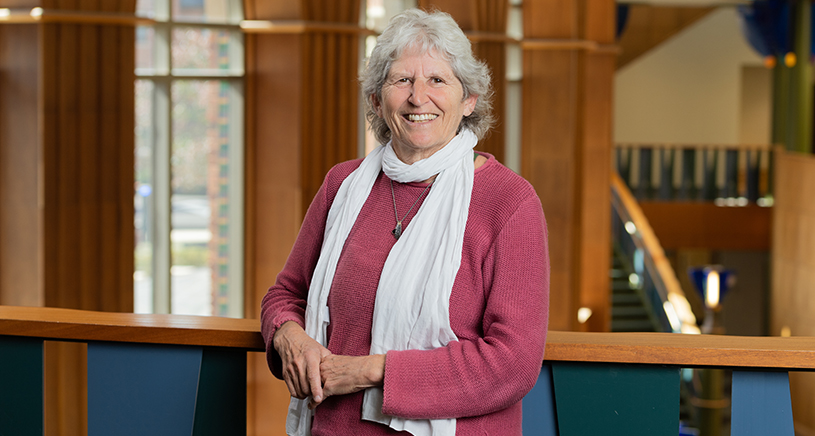Excellence in Research Faculty Award: Betsy Foxman

Betsy Foxman, professor of epidemiology, has been named the 2023 recipient of the Excellence in Research Award. Foxman has made pioneering contributions to the understanding of the epidemiology of urinary tract infections, maternal-child health, hospital-acquired infections, antibiotic resistance and oral health. Her world-leading interdisciplinary studies address important public health problems by integrating molecular and epidemiologic methods. She has published more than 280 papers and her works have been cited more than 30,000 times.
Foxman has served as Chair of the Epidemiology Section of the American Public Health Association, President of the American College of Epidemiology, Program Chair of the 2006 North American Congress of Epidemiology, and is currently President-Elect of the American Epidemiological Association, an honorary society of senior epidemiologists. She also authored a textbook, Molecular Tools and Infectious Disease Epidemiology, and is currently writing the second edition.
Foxman is also the founder and director of the Center for Molecular and Clinical Epidemiology of Infectious Diseases (MAC-EPID). Established in 1999, MAC-EPID has become a center for faculty, students and staff interested in the transmission, pathogenesis, evolution and ecology of infectious agents to come together and learn from one another. The twice yearly MAC-EPID symposium series has, since 2003, provided cutting edge presentations on topics of public health and general science interest, from antibiotic resistance to climate change.
“She is truly a giant in our field,” said Belinda Needham, chair of the Department of Epidemiology. “She has been a part of our school community for nearly 40 years and her impact during that time has been profound.”
Her colleagues regard her as a mentor and visionary in the field.
“One of the things that I admire most about Dr. Foxman is her commitment to supporting students and junior faculty,” said Needham, “I have personally benefited from her mentorship and am grateful for the support she has shown me over the years.”
Over the past 15 years, Foxman has secured training grants to support students in the School of Public Health as well as other schools at the University. These grants train the next generation of scientists to design and implement novel prevention, diagnostic and treatment strategies stemming from a deep understanding of the impact of microbial communities on human and environmental health.
“This award is not mine alone,” Foxman said. “It also belongs to my many colleagues, staff and students who work with me to increase our understanding of the molecular epidemiology of urinary tract infections, maternal-child health and the other areas I research.”
